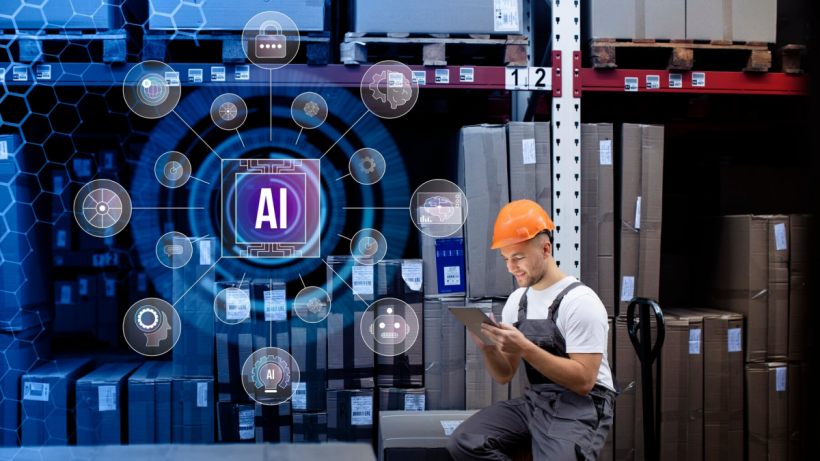You’ve heard the rumors. AI is coming for everyone’s job. While it’s human nature to worry about the future implications of technology, AI won’t impact every industry the same. Yes, some people might need to rethink the remainder of their careers. Once AI fully develops, it’s possible the technology will take over some of the responsibilities humans fulfill today.
But what’s more likely is that AI will enhance the work people already do. It also stands to shift humans into different scopes and types of duties. The real question is, how do you prepare for the changes AI is already bringing and will continue to bring? You can start by knowing which industries are being impacted the most. Let’s look at four.
1. Human Resources
It’s ironic for technology to reshape an industry with the name “human” in it. When it comes to recruiting, hiring, and placing talent, the people factor is supposed to be front and center. However, anyone who started their career a few decades ago knows how tech has changed the HR landscape.
You no longer walk into most places and ask for an application or drop off your resume. These steps are done behind the scenes online, often with technology-driven platforms and screening tools. AI stands to take things up a notch, further streamlining how organizations select candidates.
Tools like an AI cover letter generator will become more widely used among job seekers. While it’s already necessary to customize cover letters for each job posting, it’s tedious work. These tools help candidates create different versions depending on the skills and experiences they need to highlight. They also design applicants’ materials to “communicate” in ways AI screening software will understand. It’s an effective way for candidates to navigate a challenging process.
2. Online Marketing
The impact AI is having on the digital marketing industry shouldn’t come as a surprise. Here you’ve already got the merging of technology with creativity. What’s probably most worrisome to marketing creatives like copywriters and graphic designers is whether AI will replace them. Some experts believe generative AI could write 90% of online content by 2025.
In addition, AI-driven tools can produce visual and graphic designs instantaneously. Beyond the ability to create, the technology is able to personalize customer experiences. It can recommend what to watch on your favorite streaming platform and what you should buy from an e-commerce site. Personalized emails and marketing messages are automated, requiring little, if any, human intervention.
Other implications for the digital marketing industry include automated ad targeting. These capabilities will likely impact the roles of social media managers and online ad managers. As ads become hyper-targeted and personalized for consumers, much of the guesswork for marketers will cease to exist. Technology will perform the experimentation process while fine-tuning the results as it learns what works. For brands, this could translate into higher ROI.
3. Financial Services
The financial sector is an industry where companies exchange tons of information. Consumers provide personal data to get loans, credit cards, and investment products. Financial services organizations collect information to determine risk and comply with reporting requirements, including disclosing taxable income.
AI assists with collecting, organizing, storing, and analyzing all this data. The technology can help underwriters decide whether to extend mortgages to applicants. Since more than one factor impacts the decision, AI helps speed the process up. The technology may also make the process more objective by identifying red flags — based on data, not personalities — and pinpointing which factors increase risk.
AI-driven online financial tools are another benefit the technology offers to the industry. Consumers can use them to determine the impact of extra payments on their mortgage balances and whether they can afford their dream house. Digital financial tools also automatically categorize consumers’ spending habits, making it easy to spot opportunities for a budget makeover. And if they do decide to apply for a financial product, the paperwork can be handled in an automated, seamless manner.
4. Brick-and-Mortar Retail
Go into most stores, and you’ll see several checkout lanes. Some are staffed by a human, and others aren’t. Sure, you’re the one scanning your purchases. But the computer is weighing your produce, tallying up your total, and taking your money.
Self-checkout technology has been around for a while, but the addition of AI provides enhanced fraud detection capabilities. It’s going to flag anything suspicious and summon a human employee nearby to intervene. Despite these potential interruptions, 85% of shoppers say self-checkout is faster. Slightly over 66% say speed is the main reason they use self-checkout.
Self-checkout lanes aren’t the only way AI influences retail operations, although it might be the most visible. The technology is improving supply chain logistics with more accurate predictions of product demand and stock levels. In addition, AI is assisting with optimizing product placement within stores. The tech can more effectively determine where to place specific products by analyzing data about shopper preferences. Better product placement often leads to better sales.
AI’s Lasting Impact
The above industries are only a few that are being influenced by emerging technologies like AI. It’s likely that artificial intelligence will touch the majority of the economy’s sectors in the foreseeable future. While some industries have already been impacted more than others, the relationship between humans and tech will undoubtedly grow.
Like other human inventions, AI may improve some of the functions people can do but find unpleasant or inefficient. By doing so, the technology will grant humans the freedom to spend time performing the activities they would rather do. With these improvements, perhaps AI will make work and life more enjoyable for many.
Laila Azzahra is a professional writer and blogger that loves to write about technology, business, entertainment, science, and health.
